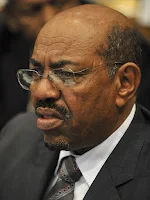The first confirmed case relating to the COVID-19 pandemic in Yemen was
announced on 10 April 2020 with an occurrence in Hadhramaut.
The
Yemeni healthcare system has been "all but decimated" by
the war, with many healthcare facilities destroyed by airstrikes and shelling
and a lack of healthcare workers.
The UN had verified the deaths of at least 7,700 civilians in Yemen by March 2020, with most caused by Saudi-led coalition air strikes.
However, the unofficial death toll record may be higher. The US-based Armed Conflict Location and Event Data Project (ACLED) said in October 2019 that it had recorded more than 100,000 fatalities, including 12,000 civilians killed in direct attacks.
More than 23,000 fatalities were reported in 2019, making it the second most lethal year of the war so far.
The news a
"devastating blow" and a "nightmare scenario" given the
country's already dire humanitarian situation.
Yemen, one of the Arab world's poorest countries, has been devastated by a civil war. Here we explain what is fueling the fighting, and who is involved.
Also Read,
The country is seen to be extremely vulnerable to the outbreak, given the dire humanitarian situation due to the Yemeni Civil War, exacerbated by the ongoing famine, cholera outbreaks, and military blockade by Saudi Arabia and its allies.
Since 2015, Yemen faced a military campaign against it. The war has killed 7,000 civilians according to the UN. Thousands of others have died due to disease, poor health care, and malnutrition.
In 2017, the UN verified 842 cases of recruitment and use of boys as young as 11, nearly two-thirds of which were attributable to Houthi forces. Under Yemeni and international law, 18 is the minimum age for military service.
Yemeni activists, journalists, lawyers, and rights defenders worry about the arrest, harassment, targeted violence, and joining the list of Yemen’s “disappeared.”
The Houthis have detained students, human rights defenders, journalists, perceived political opponents, and members of the Baha’i religious community. A group of local journalists have been detained in Sanaa for more than three years.
In January, a Sanaa court sentenced a Baha’i man to death on charges related to his religious beliefs.In July 2019, the United Arab Emirates (UAE), a key ally of Saudi Arabia in the war, facing international criticism of its conduct, announced a withdrawal of its forces from Yemen.
In August, fighting erupted in the south between Saudi-backed government forces and an ostensibly allied southern separatist movement supported by the UAE, the Southern Transitional Council (STC).
Forces loyal to the STC, which accused Mr Houthi of mismanagement and links to Islamists, seized control of Aden and refused to allow the cabinet to return until Saudi Arabia brokered a power-sharing deal that November.
The UN hoped the agreement would clear the way for a political settlement to end the civil war, but in January 2020 there was a sudden escalation in hostilities between the Houthis and coalition-led forces, with fighting on several front lines, missile strikes and air raids.
In April 2020 the STC declared self-rule in Aden, breaking a peace deal signed with the internationally recognised government, saying it would govern the port city and southern provinces.
Saudi Arabia announced a unilateral ceasefire the same month due to coronavirus pandemic but the Houthis rejected it, demanding the lifting of air and sea blockades in Sanaa and Hudaydah.
What are the crises faced by the Yemeni people?
According to the official reports of Human Rights Watch since 2015, there are 90 apparently unlawful coalition airstrikes. There is no law for regulating these airstrikes, they hit homes, markets, hospitals, schools, and mosques.
Landmines have killed many civilians. Houthi forces even used landmines in governorates across Yemen, killed and wounded civilians and even prevented them from returning home.
Yemen is a party to the 1997 Mine Ban Treaty.
The Saudi-led coalition has also used at least six types of widely banned cluster munitions produced in Brazil, the US, and the UK. Yemen, Saudi Arabia, and other coalition states are not party to the 2008 Convention on Cluster Munitions.
Houthi forces have repeatedly fired artillery indiscriminately into Yemeni cities and launched indiscriminate ballistic missiles into Saudi Arabia.
Some of these attacks may amount to war crimes. Houthi attacks have struck populated neighbourhood in Yemen, having a particularly devastating impact on Taizz, Yemen’s third-largest city.
Houthi forces, the Yemeni government, and the UAE and UAE-backed Yemeni forces have arbitrarily detained people, including children, abused detainees and held them in poor conditions, and forcibly disappeared people perceived to be political opponents or security threats.
Yemeni human rights groups and lawyers have documented hundreds of cases of arbitrary detention and enforced disappearance.
Women activists have played a prominent role during the conflict advocating for better rights protection and protesting mistreatment. Some have been threatened, subjected to smear campaigns, beaten and detained in retaliation.
Omar-Al-Bashir-The-Rise-and-Fall
|
Forced marriage rates, including child marriage, have increased. Yemen has no minimum age of marriage. They cannot marry without the permission of their male guardian and do not have equal rights to divorce, inheritance, or child custody. Lack of legal protection leaves them exposed to domestic and sexual violence.
Yemen Crisis – is the worst humanitarian crisis.
Yemen is the poorest nation in the Gulf region and due to constant conflicts- the region is shattered. Tribal groups are misplaced, and millions of civilians have starved as they were forced to go with little or no food due to war. Violence has forced farmers to abandon their crop and the majority of the population is suffering from malnutrition.
 |
| Zakir Naik |
Hospitals have been overcrowded by sick and wounded, and the situation is neglected. There are certain lessons learned from history that war never benefits mankind, yet politicians and power-hungry people are not able to understand it.
The United Nations Secretary-General Antonio Guterres has called it in April 2018 as the worst humanitarian crisis as more than 22 million people need aid and protection.
13 million deaths are in the way! - UN
Since 2016, there has been a contact famine in Yemen. However, After 5th November 2017, the Situation worsened.
In October 2018, The United Nations warned that 13 million people could starve to death and it could be the "The Worst Famine in the World". And, this is barbaric and harsh reality of today’s world. The image shows the food crisis in Yemen.
In October 2018, The United Nations warned that 13 million people could starve to death and it could be the "The Worst Famine in the World". And, this is barbaric and harsh reality of today’s world. The image shows the food crisis in Yemen.
Why did Saudi Arabia and Yemen start fight?
Saudi Arabia and Iran remain into conflict due to their religious difference between Shia and Sunni branches. So, basically it is a conflict between them.
In 2015 Saudi Arabia massively attacked on Yemen ‘s Rebel – Huti. Hutis are the followers of Shia Sect of Islam. They are religious minority, and their motto was as used in their banner-" God is great, Death to America, Death of Israel, Curse on Jews and Victory to Islam. "
In 2004, the President Ali- Abdullah Saleh was ruing Yemen. He tried to negotiate with religious minority, and failed. He considered them a possible threat to his rule and performed relentless operations against Huti.
2011, The Arab Spring started, which itself was a crisis. Therefore, the President had to step down. The Huti voted for Abdrabbuh Mansour Hadi and hoped for a new inclusive constitution. However, after failed ceasefire, the rebels tried to take control of the entire region.
The Golan Heights
|
In 2018, December, there was ceasefire agreement and Houthi rebels from three of Yemen’s port.
But while the withdrawal was under way in the mid of May,2019, Houthis, who are reportedly getting support from Iran, carried out a drone attack on a Saudi pipeline, and in retaliation Riyadh launched airstrikes on Sanaa, the capital city controlled by the rebels, killing at least six civilians, including children.
What makes the resumption of hostilities more dangerous is the regional angle. Tensions are on the rise in West Asia over the U.S.-Iran standoff. The U.S. had earlier warned against possible attacks by either Iran or Iran-backed militias against American interests or its allies in the region, and has deployed an aircraft carrier and a bomber squad to the Gulf.
A way ahead
The Saudi-led coalition and Yemeni government forces have also harassed, intimidated, and arrested activists and journalists. Since May 2017, the coalition has restricted travel routes for journalists and international human rights organizations, including Human Rights Watch, to areas of Yemen under Houthi control, including via UN flights. The coalition has kept Sanaa International Airport closed since August 2016.
Yemen now risks falling back to the pre-ceasefire days of conflict with fighting has broken out in parts of the government-controlled south.
Hospitals and healthcare are not available. The problem is the safe space in the violent atmosphere of Yemen.
People are dying due to political and religious differences, hope it ends soon. However, the issue is silent, and people are not paying much attention to it.
What happens in Yemen can greatly increase the regional tensions. The conflict is also seen as part of a regional power struggle between Shia-ruled Iran and Sunni-ruled Saudi Arabia.
Gulf Arab states - backers of President Hadi - have accused Iran of bolstering the Houthis financially and militarily, though Iran has denied this.
Yemen is also strategically important because it sits on a strait linking the Red Sea with the Gulf of Aden, through which much of the world's oil shipments pass.















No comments:
Post a Comment